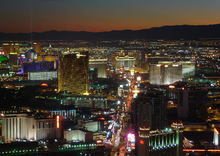
De Wallen is the largest and best known red-light district in Amsterdam. It consists of a network of alleys containing approximately 300 one-room cabins rented by prostitutes who offer their sexual services from behind a window or glass door, typically illuminated with red lights and blacklight. Window prostitution is the most visible and typical kind of red-light district sex work in Amsterdam.
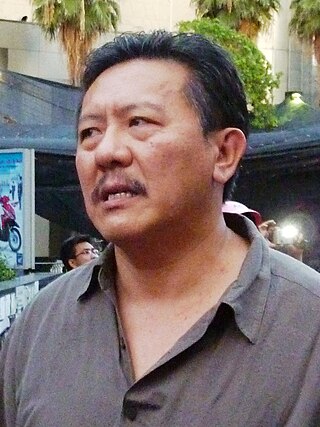
Chuwit Kamolvisit is a controversial Thai politician who was once the country's biggest massage parlour owner, known as the "tub tycoon". After an arrest in 2003, he publicly claimed that he paid large bribes to many Thai police officers. He then sold some of his massage parlors, formed his own political party and unsuccessfully ran for Bangkok governor in August 2004. In 2005 he was elected for a four-year term to the Thai House of Representatives, but in 2006 the Constitutional Court removed him from parliament. In October 2008 he again ran for governor of Bangkok as an independent but was not elected. In the July 2011 general election his party won four seats in the House of Representatives. He used the pseudonym Davis Kamol on occasion.

A massage parlor, or massage parlour, is a place where massage services are provided. Some massage parlors are front organizations for prostitution and the term "massage parlor" has also become a euphemism for a brothel.

Baltimore's The Block is a stretch on the 400 block of East Baltimore Street in Baltimore, Maryland, containing several strip clubs, sex shops, and other adult entertainment merchants. During the 19th century, Baltimore was filled with brothels, and in the first half of the 20th century, it was famous for its burlesque houses. It was a noted starting point and stop-over for many noted burlesque dancers, including the likes of Blaze Starr.

The Levee District was the red-light district of Chicago from the 1880s until 1912, when police raids shut it down. The district, like many frontier town red-light districts, got its name from its proximity to wharves in the city. The Levee district encompassed four blocks in Chicago's South Loop area, initially between Harrison and Polk, between Clark and Dearborn, and then the newer Levee district, between 18th and 22nd streets. It was home to many brothels, saloons, dance halls, and the famed Everleigh Club. Prostitution boomed in the Levee District, and it was not until the Chicago Vice Commission submitted a report on the city's vice districts that it was shut down.
Racketeering is a type of organized crime in which the perpetrators set up a coercive, fraudulent, extortionary, or otherwise illegal coordinated scheme or operation to repeatedly or consistently collect a profit. The term "racketeering" was coined by the Employers' Association of Chicago in June 1927 in a statement about the influence of organized crime in the Teamsters Union. Specifically, a racket was defined by this coinage as being a service that calls forth its own demand, and would not have been needed otherwise. Narrowly, it means coercive or fraudulent business practices; broadly, it can mean any criminal scheme or operation with ongoing or reoccurring profit, as defined in the 1970 U.S. RICO Act, which aimed to curtail the power of the Mafia and other organized crime.
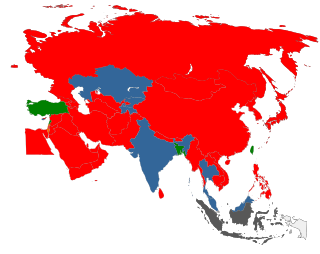
The legality of prostitution in Asia varies by country. There is often a significant difference in Asia between prostitution laws and the practice of prostitution. In 2011, the Asian Commission on AIDS estimated there were 10 million sex workers in Asia and 75 million male customers.
Organised crime in Nigeria includes activities by fraudsters, bandits, drug traffickers and racketeers, which have spread across Western Africa. Nigerian criminal gangs rose to prominence in the 1980s, owing much to the globalisation of the world's economies and the high level of lawlessness and corruption in the country.
Prostitution in Singapore in itself is not illegal, but various prostitution-related activities are criminalized. This includes public solicitation, living on the earnings of a prostitute and maintaining a brothel. In practice, police unofficially tolerate and monitor a limited number of brothels. Prostitutes in such establishments are required to undergo periodic health checks and must carry a health card.
Prostitution in Colombia is legal, regulated and limited to brothels in designated "tolerance zones". Sex workers are required to have regular health checks. However, the laws are rarely applied and prostitution is widespread, partly due to poverty and internal displacement.

The history of vice in the U.S. state of Texas has been an important part of the state's past and has greatly influenced its development. Vice activities, such as gambling and prostitution, have historically been a significant facet of both the state's culture and its economy.
Prostitution in Kosovo is illegal, and can incur a prison sentence of up to sixty days. The Global Fund to Fight AIDS, Tuberculosis and Malaria's HIV Program in Kosovo estimated there to be 5,037 prostitutes in the country. Many women turn to prostitution through poverty.
Ramesh Prasad Kharel is a policeman from Nepal known for his integrity and fight against corruption within the Nepali Police Force.

South Korea has a relatively low crime rate compared to other industrialized countries.
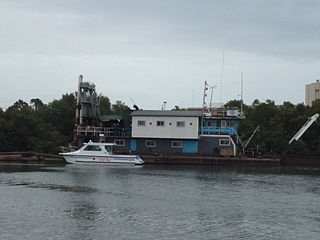
Crime is present in various forms in the Philippines, and remains a serious issue throughout the country. Illegal drug trade, human trafficking, arms trafficking, murder, corruption and domestic violence remain significant concerns.
Crime is present in various forms in Vietnam. According to the United States 2016 OSAC Crime report, Hanoi is rated as medium in Overall Crime and Safety Situation.
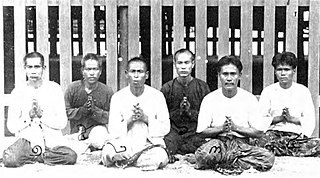
A triad is a Chinese transnational organized crime syndicate based in Greater China with outposts in various countries having significant overseas Chinese populations.

Prostitution is legal in Macau unlike in mainland China, because the city is a special administrative region of the country. However, operating a brothel and procuring are both illegal in Macau, with the latter punishable by a maximum jail sentence of 8 years. Street prostitution is illegal but sex work in a massage parlor is considered to be de facto legal. The city has a large sex trade despite there being no official red-light district. In addition to street prostitution, prostitutes work in low-rent buildings, massage parlours and illegal brothels, and the casinos, nightclubs, saunas and some of the larger hotels. Most hotels, however, have suspected prostitutes removed from the premises. Many of the city's sidewalks and underpasses are littered with prostitutes' calling cards.
Young black women of the Harlem Renaissance lived with uncertainty of their rights and their roles at a time in which women began to question their sexuality in fear of facing the scrutiny. The women of Harlem began questioning their equal rights and freedom of sexual expression. One occupation that flourished was prostitution. In the early 1900s, New York City thrived with prostitution. Amidst the artistic spectrum of the Harlem Renaissance, the occupation of prostitution created an underlying tension for African American women and their right to solicit their bodies for profit. Preceding World War One, American ideology of sexuality was restrained by religion and denial. Sex was a private matter and was deemed taboo outside of procreation. Idealized notions of the sexual union, however, made non-procreative sex lustful and demeaning. This way of thinking immediately pushes prostitution into the spectrum of being a sinful act and portraying the act in a demeaning manner.
No. 1 Geisha was a legal brothel (ranch) and massage parlor in Elko, Nevada. The women who worked there were of Asian heritage. It was previously known as the Mona Lisa Ranch and CharDon's Club.
